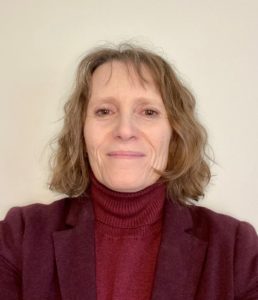 I have been in the Maine Attorney General’s Office for 28 years, the last 22 in the Consumer Protection Division working primarily on charities and antitrust enforcement. I became Division Chief in April this year, upon the retirement of our longtime chief, Linda Conti, known and respected by many of you. We have a small but mighty division of five attorneys, two research assistants, and two secretaries, who, along with two tobacco program specialists, enforce Maine’s consumer, charities, antitrust, and tobacco laws, as well as handle state collections. We also house the office’s highly successful and professional Consumer Information and Mediation Service, ably staffed by five complaint examiners and a cadre of volunteer mediators.
I have been in the Maine Attorney General’s Office for 28 years, the last 22 in the Consumer Protection Division working primarily on charities and antitrust enforcement. I became Division Chief in April this year, upon the retirement of our longtime chief, Linda Conti, known and respected by many of you. We have a small but mighty division of five attorneys, two research assistants, and two secretaries, who, along with two tobacco program specialists, enforce Maine’s consumer, charities, antitrust, and tobacco laws, as well as handle state collections. We also house the office’s highly successful and professional Consumer Information and Mediation Service, ably staffed by five complaint examiners and a cadre of volunteer mediators.
While I have dabbled in consumer matters over the years (we all occasionally have to pivot to address the needs of the day), I am not a consumer lawyer. Supervising staff practicing in areas I have not (including two lawyers hired in the last year who are themselves new to consumer protection), has been a challenge. But it has also been incredibly rewarding, as I have a fantastic staff – hard-working, smart, and motivated – who make it a joy to learn with them. I think I may even be getting the hang of it!
As to my own primary practice, I am active in local and multistate antitrust investigations and cases. The local work includes both mergers/acquisitions, as well as conduct investigations. From hospitals to lobsters to gas stations, the industries I get to learn about are as far-ranging as the towns and cities in the country’s demographically oldest and most heavily forested state, which spans over 360 miles from north to south. On the multistate front, I have been very active in two pharmaceutical cases currently being litigated in federal court, including serving on the executive committee of one of them. The other large portion of my substantive practice consists of charities oversight, which is all local. Recent cases include suing the personal representative of the estate of famous pop artist Robert Indiana and his multiple law firms for excess compensation (and recovering approximately $2 million for the sole charitable beneficiary), and a successful challenge to the local council of the Boy Scouts of America, who were trying to sell a beloved lakefront camp in central Maine deeded in permanent trust in the 1940s to pay down general debt.
Ever since I began in the office, after one year of clerking and three years of private practice, I knew I would spend my career here. I cannot imagine a better legal job. Being a government lawyer means being able to take principled positions for the public interest, and not being beholden to private client concerns or the ceaseless pressures of contributing to the business enterprise of a law firm. You are liberated to spend the time it takes to research, collaborate, and figure things out without worrying about billable hours, and you can do what is right and best for the citizens of your state, not just what is ethically permissible to further your client’s individual interests. State governments, in particular, especially in a small state like Maine, can also be relatively nimble compared to our federal counterparts. Our office, for example, has few levels in the chain of command, so we can act quickly when necessary. And the work is always so interesting and intellectually challenging!
In my spare time, I talk law and do word games with my litigation chief husband and coddle our needy dog since our four amazing children are all grown up and scattered to the winds.
Other articles in this edition include:
- Common-Interest Doctrine and Attorney-Client Privilege for Public Attorneys Confirmed by Minnesota Supreme Court in Energy Policy Advocates v. Ellison
- Attorney General Consumer Protection News: October 2022
- Federal Consumer Protection News: October 2022





